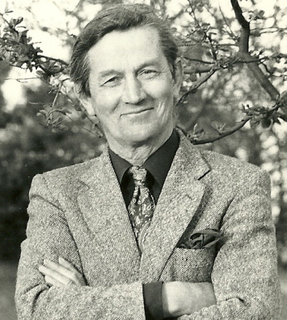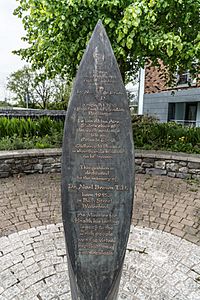Noël Browne facts for kids
Quick facts for kids
Noël Browne
|
|
|---|---|
 |
|
| Minister for Health | |
| In office 18 February 1948 – 11 April 1951 |
|
| Taoiseach | John A. Costello |
| Preceded by | James Ryan |
| Succeeded by | John A. Costello |
| Leader of the National Progressive Democrats | |
| In office 23 July 1958 – 4 April 1963 |
|
| Preceded by | New office |
| Succeeded by | Office abolished |
| Teachta Dála | |
| In office June 1981 – February 1982 |
|
| Constituency | Dublin North-Central |
| In office June 1977 – June 1981 |
|
| Constituency | Dublin Artane |
| In office June 1969 – February 1973 |
|
| Constituency | Dublin South-East |
| In office March 1957 – April 1965 |
|
| Constituency | Dublin South-East |
| In office February 1948 – May 1954 |
|
| Constituency | Dublin South-East |
| Senator | |
| In office 1 May 1973 – 17 August 1977 |
|
| Constituency | Dublin University |
| Personal details | |
| Born |
Noël Christopher Browne
20 December 1915 Waterford, Ireland |
| Died | 21 May 1997 (aged 81) Baile na hAbhann, County Galway, Ireland |
| Political party | Independent (1951–53, 1955–58, 1977–81, 1979–80, 1982–97) |
| Other political affiliations |
Clann na Poblachta (1946–54) Fianna Fáil (1953–57) National Progressive Democrats (1958–63) Labour Party (1963–77) Socialist Labour Party (1977–82) |
| Spouse |
Phyllis Harrison
(m. 1947–1997) |
| Children | 2 |
| Education | Beaumont College |
| Alma mater | Trinity College Dublin |
Noël Christopher Browne (born December 20, 1915 – died May 21, 1997) was an important Irish politician. He served as the Minister for Health from 1948 to 1951. He also led the National Progressive Democrats party from 1958 to 1963.
Browne was a Teachta Dála (TD), which is a member of the Irish parliament, for many years. He was a TD from 1948 to 1954, 1957 to 1973, and again from 1977 to 1982. He was also a Senator from 1973 to 1977.
He is one of only a few TDs to become a government minister right after being elected for the first time. As Minister for Health, Noël Browne is famous for his successful fight against Tuberculosis (TB). However, his plan for the Mother and Child Scheme caused a big political argument. This led to the government falling apart in 1951.
Browne was a well-known politician, but he also caused some disagreements. He was a TD for five different political parties and also served as an independent TD. He even helped start two of these parties.
Contents
Noël Browne's Early Life and Education
Noël Browne was born in Waterford, Ireland, in 1915. He grew up in Derry and also lived in Athlone and Ballinrobe. His family faced a tough time with a serious illness called tuberculosis (TB). Sadly, both his parents passed away from TB when he was young. His mother, who was also very ill, moved the family to London hoping for a better life, but she sadly died soon after.
Noël was one of only two children in his family to survive TB and grow up. He was very lucky to get a good education. In 1929, he got into a school in England for free. Then, he won a scholarship to Beaumont College, a private school. There, he became friends with Neville Chance, whose wealthy family helped Noël pay for medical school at Trinity College Dublin.
In 1940, while still a student, Noël got TB again. The Chance family paid for his treatment, and he recovered. He finished his medical exams in 1942 and started working as a doctor in Dublin. He saw how much TB affected people in hospitals across Ireland and England. This made him believe that he needed to enter politics to fight the disease.
Joining Politics to Help Others
Noël Browne's difficult childhood really shaped him. He felt that his survival and education were a stroke of luck. He didn't want others to suffer the same way his family did. This strong feeling made him decide to become a politician. He wanted to make sure everyone had a chance at a better life.
Browne joined a new Irish political party called Clann na Poblachta. In the 1948 election, he was elected as a TD for Dublin South-East. Many people were surprised when the party leader, Seán MacBride, chose Browne to be one of the government ministers. Noël Browne became the Minister for Health on his very first day as a TD.
Minister for Health: Fighting TB
When Noël Browne became Minister for Health in 1948, there were already plans for healthcare changes. He quickly started putting these plans into action.
At this time, new vaccines and medicines like BCG and penicillin were being developed. These helped treat illnesses that were very hard to cure before. Browne started free testing for TB and began a huge project to build new hospitals and special TB treatment centers called sanatoria. He paid for these using money from the Hospital Sweeps funds. These efforts, along with new medicines, greatly reduced the number of TB cases in Ireland.
The Mother and Child Scheme Controversy
As Minister for Health, Noël Browne faced disagreements with the Catholic Church and many doctors. This was because of his plan called the Mother and Child Scheme. This plan aimed to give free healthcare to all mothers and children under 16, without checking how much money their families made. This was a very new idea for Ireland at the time.
Most private doctors didn't like the plan because it would change how they earned money. The Church, which ran many hospitals, also strongly opposed the idea of the government providing so much healthcare. They didn't like Browne because he had attended Trinity College Dublin, which the Church had advised Catholics not to attend.
Because of pressure from the Church, the government decided not to support the Mother and Child Scheme. This led to Noël Browne resigning as Minister for Health.
He explained his side of the story in parliament on April 12, 1951. He was upset that the government had asked the Church for approval of his plan, making it seem like only his idea and not government policy. This left him no choice but to resign. The Prime Minister, John A. Costello, disagreed with Browne's statement. After leaving the government, Browne shared letters between the government and the Church with The Irish Times newspaper. These letters showed how the government had given in to the Church's demands.
The argument over the Mother and Child Scheme caused the government to fall apart. Even after this, the Church continued to oppose similar healthcare plans.
Noël Browne's Later Political Life
After resigning as Minister for Health, Noël Browne left his party, Clann na Poblachta. However, he was re-elected as an Independent TD for Dublin South-East in the next election.
He joined the Fianna Fáil party in 1953 but lost his seat in the 1954 election. He later left Fianna Fáil. In 1958, he started a new party called the National Progressive Democrats with Jack McQuillan. Browne kept his seat in the 1961 election. In 1963, he and McQuillan joined the Labour Party, and their old party was dissolved. However, Browne lost his seat in the 1965 election.
During the 1960s and 1970s, Browne spoke out strongly against Apartheid in South Africa. Apartheid was a system of racial separation. In 1970, he protested when the South African rugby team played in Ireland. He asked people to stop buying products from South Africa to support the ANC's fight against Apartheid.
He was re-elected as a Labour Party TD in 1969. In 1973, he chose not to run for TD again. Instead, he won a seat in Seanad Éireann (the Irish Senate) for Dublin University. He stayed in the Senate until 1977. Then, he was elected as an Independent Labour TD for Dublin Artane.
Later, he joined the new Socialist Labour Party. He was elected as their only TD for Dublin North-Central in 1981. Noël Browne retired from politics in 1982.
Presidential Candidacy Offer
In 1990, some members of the Labour Party asked Noël Browne if he would run for president. Even though he wasn't in good health, Browne agreed. However, the party leaders had already decided to support Mary Robinson for the role.
When the party leader, Dick Spring, told Browne that Robinson had been chosen, Browne hung up the phone. Browne spent the rest of his life criticizing Mary Robinson, who went on to become the seventh President of Ireland.
Noël Browne's Personality and Legacy
Noël Browne was a very talked-about person in 20th-century Ireland. His supporters saw him as a brave and modern thinker who stood up against old-fashioned ideas. Others found him difficult and believed he often caused his own problems.
In 1986, he published his autobiography, Against the Tide. This book was very popular and sold many copies. Some historians, however, questioned if everything in the book was completely accurate.
One of his colleagues, Fergus Finlay, later described Browne as becoming "bad tempered." Another historian, Maurice Manning, said that while Browne could inspire loyalty, many found him hard to work with. He was sometimes seen as self-centered and unfair to those who disagreed with him. It's worth noting that Noël Browne was deaf in one ear due to an infection, which might have contributed to some of these misunderstandings.
After leaving politics, Noël Browne moved with his wife, Phyllis, to Baile na hAbhann, County Galway. He passed away there on May 21, 1997, at the age of 81.
In a 2010 public poll by RTÉ, Noël Browne was voted among the top 10 of Ireland's Greatest people. In 2021, Leo Varadkar, a former Irish Prime Minister, gave a speech about Noël Browne. Varadkar praised Browne's "idealism, his passion, and his determination to stand up for the causes and the people he believed in."
Images for kids
| Political offices | ||
|---|---|---|
| Preceded by James Ryan |
Minister for Health 1948–1951 |
Succeeded by John A. Costello (acting) |
| New title | Leader of National Progressive Democrats 1958–1963 |
Succeeded by Merged with Labour Party |
 | Aaron Henry |
 | T. R. M. Howard |
 | Jesse Jackson |



